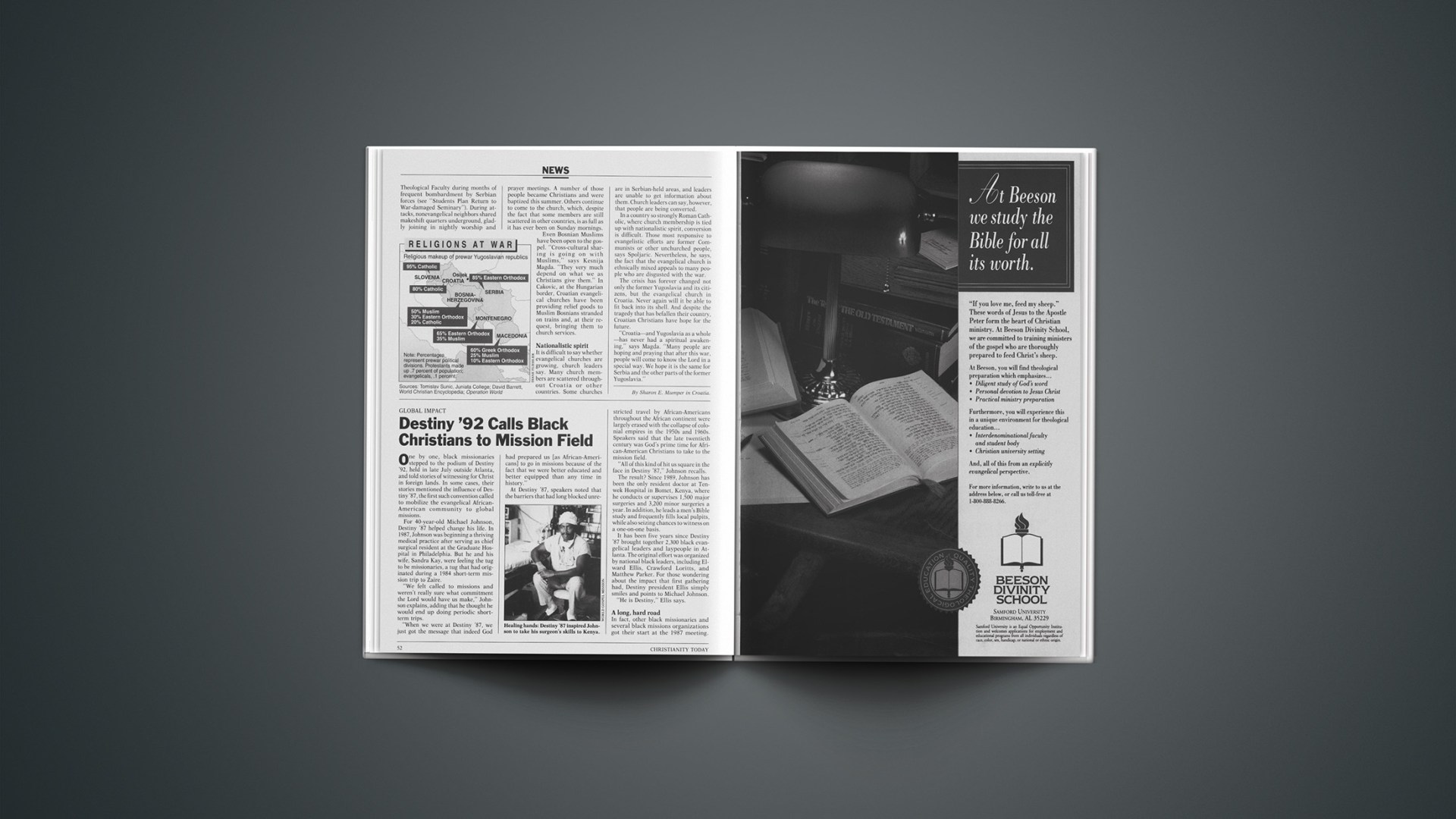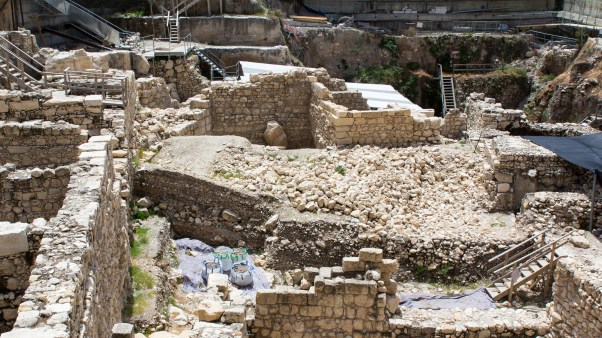One by one, black missionaries stepped to the podium of Destiny ’92, held in late July outside Atlanta, and told stories of witnessing for Christ in foreign lands. In some cases, their stories mentioned the influence of Destiny ‘87, the first such convention called to mobilize the evangelical African-American community to global missions.
For 40-year-old Michael Johnson, Destiny ‘87 helped change his life. In 1987, Johnson was beginning a thriving medical practice after serving as chief surgical resident at the Graduate Hospital in Philadelphia. But he and his wife, Sandra Kay, were feeling the tug to be missionaries, a tug that had originated during a 1984 short-term mission trip to Zaire.
“We felt called to missions and weren’t really sure what commitment the Lord would have us make,” Johnson explains, adding that he thought he would end up doing periodic short-term trips.
“When we were at Destiny ‘87, we just got the message that indeed God had prepared us [as African-Americans] to go in missions because of the fact that we were better educated and better equipped than any time in history.”
At Destiny ‘87, speakers noted that the barriers that had long blocked unrestricted travel by African-Americans throughout the African continent were largely erased with the collapse of colonial empires in the 1950s and 1960s. Speakers said that the late twentieth century was God’s prime time for African-American Christians to take to the mission field.
“All of this kind of hit us square in the face in Destiny ‘87,” Johnson recalls.
The result? Since 1989, Johnson has been the only resident doctor at Tenwek Hospital in Bomet, Kenya, where he conducts or supervises 1,500 major surgeries and 3,200 minor surgeries a year. In addition, he leads a men’s Bible study and frequently fills local pulpits, while also seizing chances to witness on a one-on-one basis.
It has been five years since Destiny ‘87 brought together 2,300 black evangelical leaders and laypeople in Atlanta. The original effort was organized by national black leaders, including El-ward Ellis, Crawford Loritts, and Matthew Parker. For those wondering about the impact that first gathering had, Destiny president Ellis simply smiles and points to Michael Johnson.
“He is Destiny,” Ellis says.
A Long, Hard Road
In fact, other black missionaries and several black missions organizations got their start at the 1987 meeting. Since then, the Destiny movement has slowly laid its organizational base. Ellis and a finance manager are the only full-time employees and are based in Atlanta. From there, they and a team of volunteers are training six field associates (four others are about to join) to be nonpaid staff working in eight regions of the U.S. with local black evangelical churches.
They are starting to offer a three-year program of Destiny-developed seminars on subjects such as the theology of missions and church missions strategy.
But while there are signs that Destiny’s efforts are taking root, the 1992 gathering also raised questions about its future viability.
For one, only about 800 people attended the 1992 meeting. More than 2,000 had been expected. That created a situation in which Destiny leaders had to appeal for funds on more than one occasion during nightly meetings. At one point, leaders said the Stouffer Waverly Hotel management was threatening to close the rest of the convention.
Individual Effort
The conference was completed, however. And at a board meeting on the gathering’s final day, leaders took steps they say will ensure that Destiny continues stronger than ever. They elected an executive director, Warren Mosby, of Atlanta, who will relieve Ellis of many administrative duties so he can travel to implement Destiny’s goals.
Mosby and Ellis note optimistically the strong response that came from the appeals for help, along with the new commitments made by many conferees to full-time missions. While Destiny ’92 was smaller than the previous meeting, its leaders say responses show attenders realized that Destiny’s effort to get black evangelicals into foreign missions relies on individual involvement and not just a handful of national black leaders.
Reginald Hobbes, 31, who recently became Destiny’s volunteer regional director for the Florida area, is another example of that effort. Says Hobbes, “If Destiny is going to have an impact on the African-American community, it has to be a grassroots movement.”
By Joe Maxwell in Atlanta.









